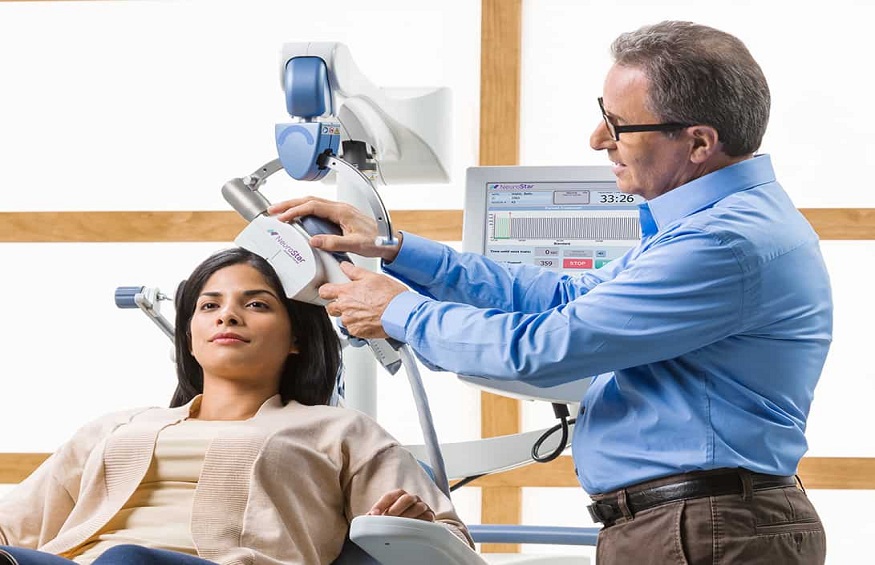According to the Anxiety and Depression Association of America, depression is the biggest cause of disability among persons under 44. Depression affects around 16.1 percent of American adults each year. Treatment for depression often consists of many components, including medication, talk therapy, and behavioral changes. One method of dealing with depression is transcranial magnetic stimulation (TMS). Seeing a qualified TMS specialist such as Dr. Bryon K Evans comes with several benefits, including the following:
1. TMS is a non-invasive treatment
TMS does not involve any bodily intrusion and is effective. There’s no need for electrode implantation or invasive surgery. During a TMS session, the machine transmits a modest electromagnetic pulse or wave through the skull into the brain, stimulating certain regions and, in particular, the cells responsible for mood regulation, which produce neurotransmitters like serotonin and dopamine. The pulses employed are non-invasive and painless, much like those used in an MRI.
The TMS technician will ask the client to remove any metal items (such as jewelry or credit cards) that might interfere with the magnetic waves before the session begins. Earplugs are typically provided to alleviate the pain caused by the treatment machine’s loud clicking sounds. During this procedure, a tiny electromagnetic coil is put against the scalp; its precise placement is governed by factors such as the patient’s head size, the specific brain regions being stimulated, and the equipment being utilized. The machine’s coil generates weak magnetic fields that excite nerve cells.
2. Side effects are reduced.
Antidepressants are not a panacea, although they may help some individuals who have not found any other way out of their depression. Unfortunately, some people struggle with the unwanted effects of their medications. Nausea, reduced libido, headaches, sleeplessness, dry mouth, dizziness, and fainting are all common negative reactions to antidepressants.
TMS treatment may be preferable to medicine if you have not been pleased with the adverse effects of medication. Although some individuals report no symptoms, others may suffer from tingling or lightheadedness. These negative reactions are temporary and often disappear soon after TMS treatment ends.
3. TMS is not addictive
An addiction risk is associated with several pharmacological therapies for mental health issues, including depression. Some exclusive rehabilitation facilities utilize transcranial magnetic stimulation (TMS) to aid alcoholics and drug addicts since it is safe and successful in treating addiction and other co-occurring illnesses, including post-traumatic stress disorder and bipolar disorder.
4. It’s effective
Electromagnetic stimulation (TMS) is an excellent therapy for depression. Recent studies published in Cureus demonstrate the efficacy of TMS treatments for depression, especially when conventional therapies have failed. Sixty percent of those who have tried standard therapies like antidepressant medication without success find relief with TMS. TMS is useful because it stimulates the dorsolateral prefrontal cortex, a brain region that is often underactive in persons with depression.
TMS is a novel and promising treatment for treatment-resistant depression that has shown positive results in clinical trials. TMS, which may be performed in an outpatient environment, is a non-invasive therapy that is typically safe and well-tolerated. Patients may now schedule their treatment around their busy schedules. TMS also has a bright future since studies look at its potential for a wider range of uses and even as a therapy for continuous maintenance.

